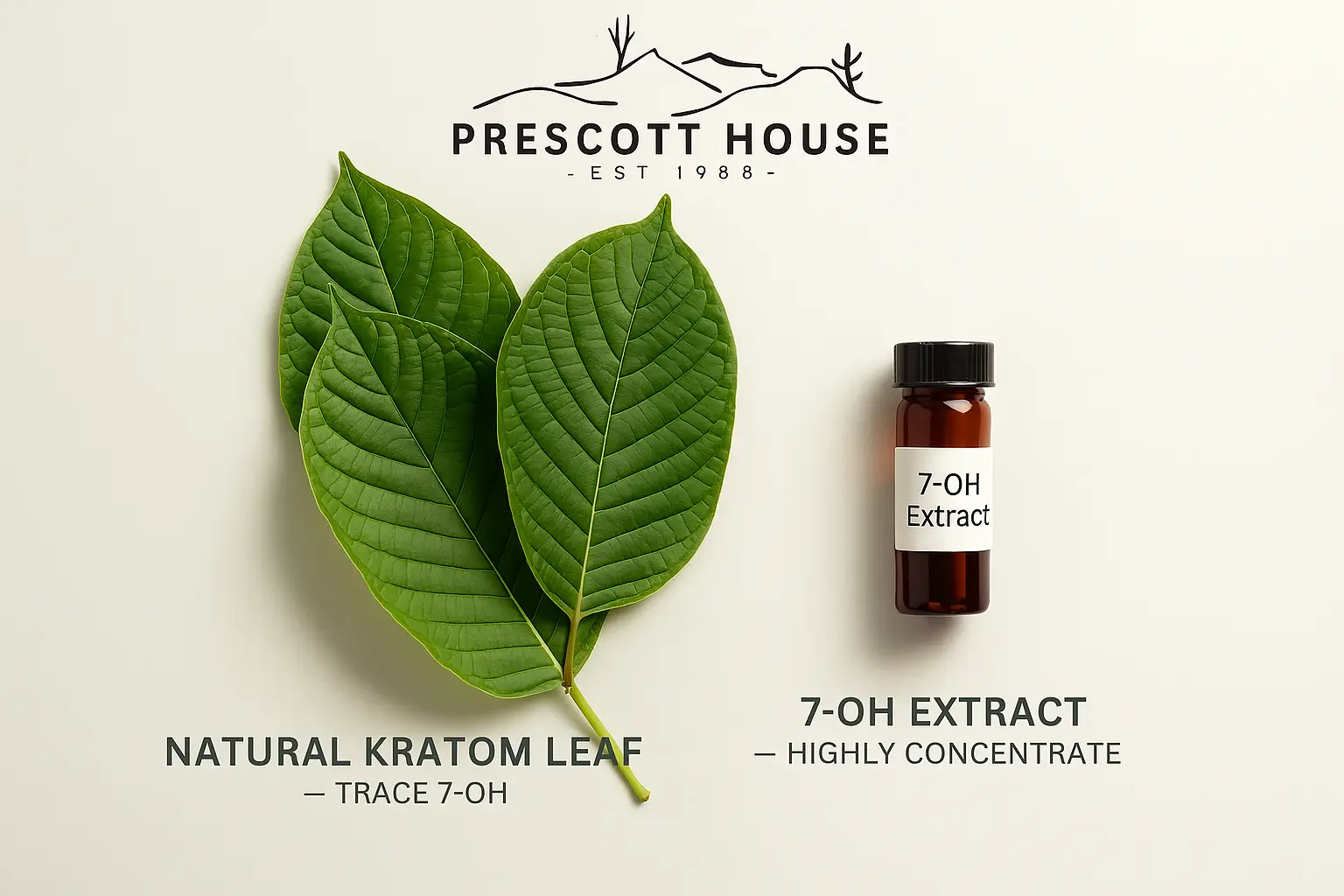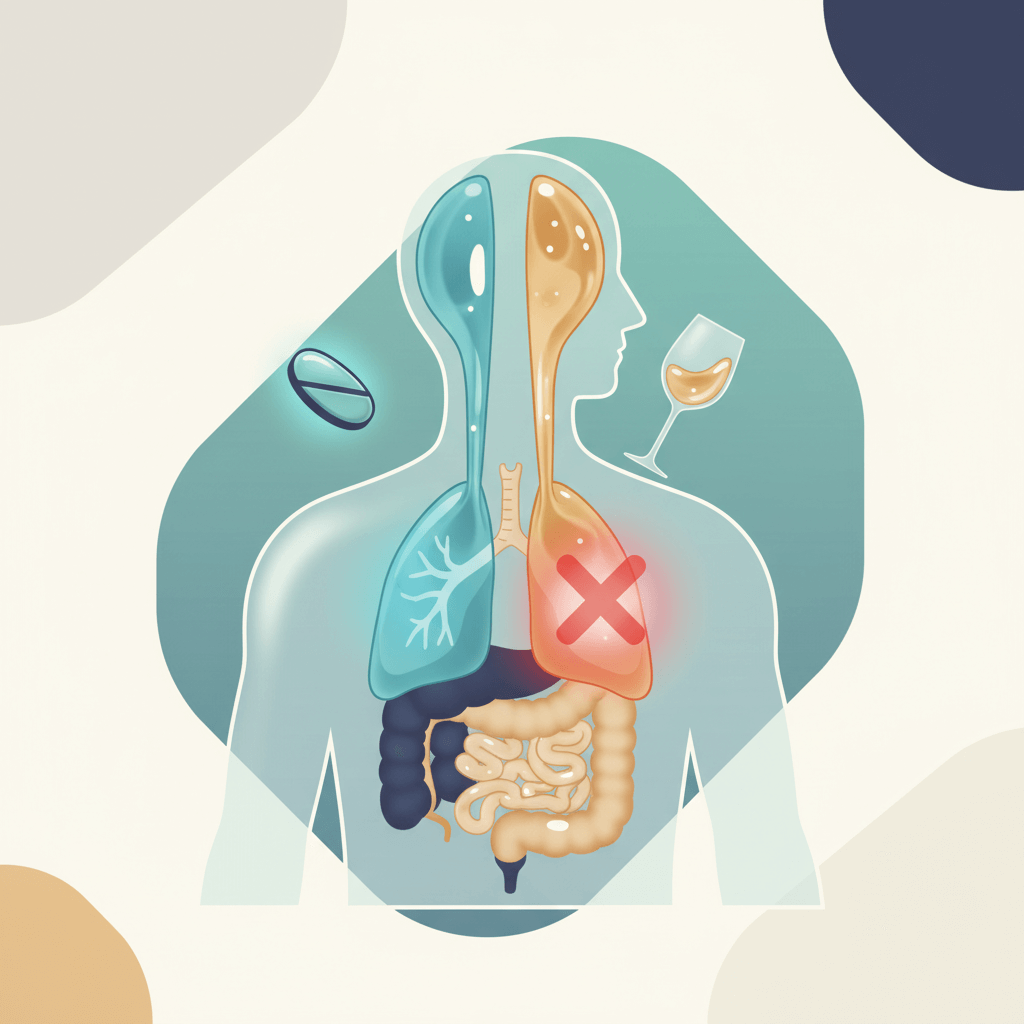Understanding Addiction
To truly comprehend the challenges of addiction and its impact on an individual's life, it is important to have a clear understanding of what addiction entails and how it affects those who struggle with it.

Definition of Addiction
The term "addiction" has a long history, dating back to the 16th century. According to Merriam-Webster, the word originates from the Latin term "addictio," which referred to the assignment of a debtor to the custody of their creditor. However, in the context of substance use and behavioral disorders, addiction has evolved to encompass a much broader meaning.
Addiction, as defined by the American Society of Addiction Medicine, is a treatable chronic medical disease that involves complex interactions among brain circuits, genetics, the environment, and an individual’s life experiences. It is characterized by the continued engagement in compulsive behaviors despite harmful consequences.
Impact of Addiction on Life
Understanding the definition of addiction is crucial, but it does not guarantee sobriety. Addiction has a profound impact on various aspects of a person's life. It becomes the central focus, often overshadowing other priorities and responsibilities.
Individuals with addiction may spend a significant amount of time and money acquiring and using their drug of choice, neglecting activities that were once enjoyed. This can lead to a decline in social interactions, hobbies, and overall quality of life [1].
Addiction also affects an individual's ability to function in their work or school life. The consequences of addiction can range from decreased productivity and absenteeism to strained relationships with colleagues, supervisors, or teachers.
It is important to recognize that addiction is a chronic disease, similar to other medical conditions such as heart disease or asthma. Treatment for addiction is not a cure but rather a way of managing the condition. Relapse to drug use does not indicate treatment failure, as the chronic nature of addiction may involve relapse as part of the recovery process. It is worth noting that newer treatments are designed to help prevent relapse, and relapse rates for drug use are comparable to rates for other chronic medical illnesses.
In conclusion, understanding the definition of addiction is just the first step in comprehending the complex nature of this chronic disease. It is vital to acknowledge the profound impact addiction can have on an individual's life, highlighting the need for effective treatment and support systems to help individuals navigate their journey towards sobriety.
Addiction as a Chronic Disease
Understanding the definition of addiction is an important step in recognizing its impact on individuals' lives. However, it's crucial to acknowledge that simply knowing the addiction definition does not guarantee sobriety. Addiction is a treatable chronic medical disease that involves complex interactions among brain circuits, genetics, the environment, and an individual's life experiences.
Complex Interactions in Addiction
Addiction is not a simple condition with a one-size-fits-all solution. It involves intricate interactions between various factors. These factors include biological elements such as brain chemistry, genetic predispositions, and neuroadaptations, as well as environmental influences like exposure to drugs, stress, and trauma.
The brain plays a significant role in addiction, as the repeated use of drugs or engagement in addictive behaviors can lead to changes in the brain's reward circuitry. These changes can result in a heightened desire for the substance or behavior, making it challenging to resist cravings and control impulses.
Furthermore, addiction is influenced by an individual's unique life experiences. Traumatic events, social pressures, and underlying mental health conditions can contribute to the development and persistence of addiction. It is essential to consider these factors when addressing addiction and designing personalized treatment plans.
Compulsive Behaviors in Addiction
One distinguishing characteristic of addiction is the presence of compulsive behaviors. People with addiction often engage in these behaviors despite experiencing negative consequences. The compulsive nature of addiction can make it difficult for individuals to stop using drugs or engaging in addictive behaviors, even when they have a strong desire to quit.
Compulsive behaviors in addiction are driven by the brain's reward system. When an individual uses drugs or engages in addictive behaviors, the brain releases dopamine, a neurotransmitter associated with pleasure and reward. Over time, the brain becomes less responsive to the dopamine release, leading to a diminished sense of pleasure. As a result, individuals may increase their substance use or engage in riskier behaviors to chase the initial euphoria.
Understanding the complex interactions and compulsive behaviors involved in addiction is crucial for effective treatment and long-term recovery. It's important to approach addiction as a chronic disease, similar to other medical conditions like heart disease or asthma. Treatment for addiction is not a cure but a way of managing the condition. Relapse to drug use does not indicate treatment failure, as addiction is a chronic disease that may involve relapse as part of the recovery process. Newer treatments aim to help prevent relapse, and relapse rates for drug use are similar to rates for other chronic medical illnesses.
By recognizing addiction as a chronic disease with complex interactions and understanding the compulsive behaviors associated with it, individuals and healthcare professionals can approach treatment and recovery with a comprehensive and compassionate approach.
Treatment and Recovery
When it comes to addiction, simply knowing the definition does not guarantee sobriety. Addiction is a complex and chronic disease that affects various aspects of an individual's life, including legal, financial, family, friends, hobbies, spare time, school or work, physical health, emotional and mental health, and spiritual health [4]. Understanding the definition of addiction is just the first step in the journey towards recovery.
Managing Addiction as a Chronic Disease
Addiction is a treatable chronic medical disease that involves complex interactions among brain circuits, genetics, the environment, and an individual's life experiences. It is important to recognize that addiction is not a moral failing or a lack of willpower. It is a disease that requires medical intervention and ongoing management.
Managing addiction involves a comprehensive and individualized treatment approach. It may include a combination of therapies, medications, counseling, and support services. Treatment plans should be tailored to meet the specific needs of the individual, taking into account their unique circumstances and challenges.
Relapse and Recovery Process
Recovery from addiction is not always a linear journey. Relapse, or a return to drug use, does not indicate treatment failure. It is important to understand that addiction is a chronic condition, similar to other chronic medical illnesses like heart disease or asthma. Relapse can be part of the recovery process, and it does not mean that the individual cannot achieve long-term sobriety.
Newer treatment approaches focus on relapse prevention and helping individuals develop the necessary skills and strategies to maintain their sobriety. It is crucial to provide ongoing support and monitoring to individuals in recovery to help them navigate the challenges they may face along the way. This may include counseling, support groups, and access to resources that can assist in the recovery process.
Resources for Addiction Help
For individuals seeking help with addiction, there are resources available to provide support, information, and treatment options. These resources are accessible to anyone, regardless of their location or circumstances. In Canada, resources and information are available for individuals needing help with substance use, overdose prevention, and quitting smoking [5].
It is important to reach out to healthcare professionals, addiction specialists, or helplines to explore the available options. These resources can provide guidance, connect individuals with appropriate treatment programs, and offer support throughout the recovery journey.
Remember, knowing the addiction definition is just the beginning. Recovery from addiction is a continuous process that requires ongoing commitment, support, and personalized treatment strategies. With the right resources and a comprehensive approach, individuals can find the path to sobriety and a healthier, fulfilling life.
Effects on Personal Life
Addiction is a complex condition that has far-reaching effects on an individual's personal life. Knowing the addiction definition does not guarantee sobriety, as addiction impacts various aspects of a person's life, including prioritization, daily activities, and family and relationship dynamics.
Prioritization of Addiction
Once addiction takes hold, it becomes the central focus and priority in a person's life. The pursuit of the addictive substance or behavior takes precedence over other responsibilities and activities that were once enjoyed. As a result, individuals may spend more time and money acquiring and using the substance, neglecting their personal and professional obligations. According to Aviary Recovery Center, addiction can lead to neglect of hobbies, loss of interest in previously enjoyed activities, and a negative impact on work or school life.
Impact on Daily Activities
Addiction can significantly disrupt a person's daily activities. Individuals struggling with addiction may neglect their responsibilities, such as work, school, or household chores, due to the preoccupation with obtaining and using the addictive substance. Personal hygiene and self-care may also suffer as a result. According to the National Institute on Drug Abuse, addiction can result in neglect of personal hygiene and a decline in overall self-care.
Family and Relationship Dynamics
Addiction not only affects the individual but also takes a toll on the entire family unit. The impact of addiction can erode trust, increase conflict, and damage relationships. Loved ones often experience emotional distress due to broken promises, lies, financial issues, and the strain of witnessing a loved one struggle with addiction. According to the National Institute on Drug Abuse, addiction strains family dynamics and can lead to broken trust, increased conflict, and a breakdown in communication. The Aviary Recovery Center also highlights that addiction can damage relationships due to lies, broken promises, and financial issues.
The effects of addiction on personal life extend beyond these aspects. Addiction can also have consequences related to legal issues, financial difficulties, physical health problems, and emotional and mental health challenges.
Understanding the profound impact of addiction on personal life is crucial in recognizing the need for intervention and seeking appropriate treatment and support. By addressing the multifaceted aspects of addiction, individuals can take steps towards recovery and rebuilding a healthier and more fulfilling life.
Long-Term Recovery Strategies
When it comes to addiction recovery, it's essential to have long-term strategies in place to maintain sobriety and prevent relapse. While knowing the addiction definition is important, it does not guarantee sobriety. In this section, we will explore three crucial long-term recovery strategies: seeking professional help, setting boundaries and limits, and the importance of mental health support.
Seeking Professional Help
Seeking professional help at a drug and alcohol treatment center can be a significant step towards long-term recovery. These treatment centers provide individualized addiction treatment plans that address the specific needs and challenges of each person. With the guidance of trained professionals, individuals can gain a deeper understanding of their addiction, develop coping mechanisms, and learn valuable tools to navigate the challenges of recovery.
Professional help may include various forms of therapy, such as cognitive-behavioral therapy (CBT), dialectical behavior therapy (DBT), and motivational interviewing (MI). These therapies can aid in addressing the underlying issues contributing to addiction and teach individuals effective strategies for managing cravings, stress, and triggers.
Setting Boundaries and Limits
In the journey of long-term recovery, setting boundaries and limits is crucial. It's important to recognize and respect personal boundaries, both within oneself and in relationships with others. Sharing details of one's care with others, such as employers, friends, or family, is not obligatory. It's essential to prioritize one's own well-being and focus on the recovery process rather than worrying about the opinions or judgments of others.
Another aspect of setting boundaries is avoiding high-risk situations and environments associated with substance use. Overconfidence in early recovery can be detrimental, and exposing oneself to triggers and temptations may increase the risk of relapse. By recognizing personal limits and avoiding such situations, individuals can safeguard their recovery process.
Importance of Mental Health Support
Addressing the emotional and mental health aspects of recovery is crucial for long-term sobriety. Co-occurring disorders, such as anxiety, depression, or other mental health disorders, can hinder recovery if not properly identified or supported. It's important to seek appropriate mental health care and support alongside addiction treatment to ensure comprehensive recovery.
Mental health support can come in various forms, including therapy, counseling, support groups, and medication management. These resources can help individuals address the underlying emotional and psychological factors contributing to their addiction and provide strategies for managing mental health symptoms. By prioritizing mental well-being, individuals can enhance their overall recovery journey and reduce the risk of relapse.
In conclusion, long-term recovery from addiction requires a comprehensive approach. Seeking professional help, setting boundaries and limits, and prioritizing mental health support are vital strategies for maintaining sobriety and preventing relapse. By implementing these strategies and actively participating in ongoing support and treatment, individuals can increase their chances of long-term success in their recovery journey.
Peer Support in Recovery
When it comes to addiction recovery, peer support plays a significant role in helping individuals maintain long-term sobriety. Peer support can be defined as the process of giving and receiving nonprofessional, nonclinical assistance from individuals with similar conditions or circumstances to achieve long-term recovery from substance use and other related problems [7]. In this section, we will explore the benefits of peer support groups, the effectiveness of mentorship services, and the role of peer support in treatment adherence.
Benefits of Peer Support Groups
Peer support groups have been shown to have associated benefits in various aspects of substance use and recovery. These groups provide individuals with a safe and supportive environment where they can connect with others who have gone through similar experiences. Some of the benefits of peer support groups include:
- Increased treatment engagement and adherence (NCBI)
- Reductions in substance use and secondary substance-related behaviors such as craving and self-efficacy (NCBI)
- Improvements in self-efficacy, social support, and overall well-being (NCBI)
By participating in peer support groups, individuals can feel understood, validated, and encouraged on their recovery journey. Sharing experiences, challenges, and successes with others who have faced similar struggles can provide a sense of belonging and foster a supportive community.
Effectiveness of Mentorship Services
In addition to peer support groups, mentorship services have shown effectiveness in supporting individuals with alcohol-use disorders. These services involve one-to-one relationships between individuals in recovery and trained mentors who have successfully maintained their own sobriety.
Mentorship services provide guidance, encouragement, and a positive role model for individuals seeking to achieve and sustain recovery. Studies have found that mentorship services can contribute to a reduction in alcohol and drug use, with many mentors themselves sustaining abstinence [7]. The personal connection and support from a mentor can be instrumental in helping individuals navigate challenges, develop coping strategies, and work towards their recovery goals.
Role in Treatment Adherence
One of the challenges individuals with substance use disorders may face is maintaining treatment adherence. Peer support groups have been shown to be effective in increasing treatment engagement and adherence, particularly among individuals with a history of high recidivism [7].
The supportive nature of peer support groups can help individuals stay motivated, accountable, and committed to their treatment plans. By sharing their experiences and challenges, individuals gain insights and strategies from others who have successfully navigated similar obstacles. Peer support groups provide a sense of community and encouragement, which can significantly enhance treatment adherence and overall recovery outcomes.
Peer support in recovery is a valuable resource that provides a sense of belonging, understanding, and encouragement to individuals facing addiction. Whether through peer support groups or mentorship services, the power of shared experiences and support from others who have walked a similar path can play a vital role in helping individuals achieve and maintain sobriety.
References
[1]: https://aviaryrecoverycenter.com/addiction-affects-brain-life-family/
[2]: https://nida.nih.gov/publications/drugs-brains-behavior-science-addiction/treatment-recovery
[3]: https://www.asam.org/quality-care/definition-of-addiction
[4]: https://myhealth.alberta.ca/Alberta/Pages/How-does-addiction-affect-your-life.aspx
[5]: https://www.canada.ca/en/health-canada/services/substance-use/get-help-with-substance-use.html
[6]: https://ranchatdovetree.com/blog/common-barriers-to-long-term-addiction-recovery/
[7]: https://www.ncbi.nlm.nih.gov/pmc/articles/PMC5047716/













